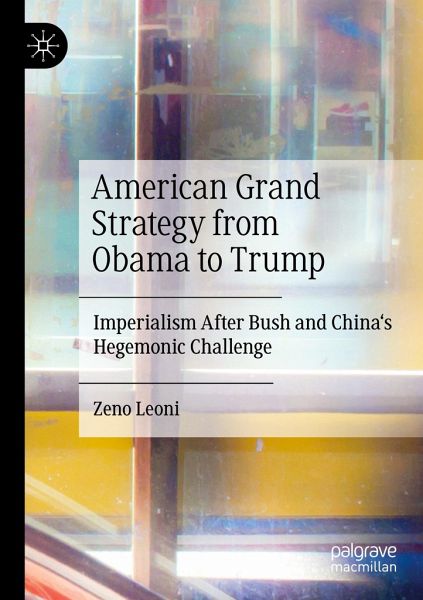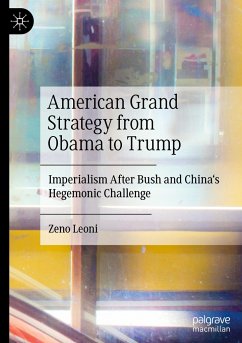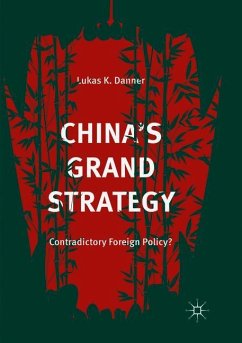
American Grand Strategy from Obama to Trump
Imperialism After Bush and China's Hegemonic Challenge
Versandkostenfrei!
Versandfertig in 6-10 Tagen
149,79 €
inkl. MwSt.
Weitere Ausgaben:

PAYBACK Punkte
0 °P sammeln!
This book maintains that the theory of imperialism should incorporate the concept of an "operational code" of political elites to account for agencies' actions. This concept would explain the strategic continuity and tactical change in US grand strategy from Obama to Trump. While both presidents pursued a strategy of off-shore balancing, their competing worldviews led to tangible differences in the way they sought to restore American power after Bush and to contain the rise of China. This book offers an important contribution after the departure of Bush concluded the 21st century debate on imp...
This book maintains that the theory of imperialism should incorporate the concept of an "operational code" of political elites to account for agencies' actions. This concept would explain the strategic continuity and tactical change in US grand strategy from Obama to Trump. While both presidents pursued a strategy of off-shore balancing, their competing worldviews led to tangible differences in the way they sought to restore American power after Bush and to contain the rise of China. This book offers an important contribution after the departure of Bush concluded the 21st century debate on imperialism, at a time when an increasingly post-American world order has undermined the "end of the state" thesis. Indeed, over the last twelve years US grand strategy has emphasized inter-state competition rather than the annihilation of rogue regimes. These events require renewed efforts for the theory of imperialism to contribute to Globalisation Theory at this crucial historical junction.












